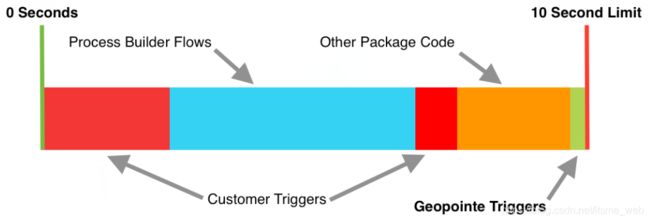- [论文阅读] 软件工程 | 探索软件生态系统中的开发者体验关键因素
探索软件生态系统中的开发者体验关键因素:从研究到实践引文格式@article{Zacarias2025,title={ExploringDeveloperExperienceFactorsinSoftwareEcosystems},author={Zacarias,RodrigoOliveiraandAntunes,L{\'e}oCarvalhoRamosandBarros,M{\'a}rciod
- 7种方法提高源码阅读技巧
学会了没
源码阅读编程技巧
Readingsourcecodeisinthejobdescriptionofasoftwaredeveloper.However,thisexperienceisnotalwayspleasant.Noteveryonewouldliketoreadsomeoneelse’scodebecausetheyfinditboring,sometimesfrustrating.Therearecas
- 计算机中哪些服务是可以禁止的,win10电脑哪些服务可以关闭?
大奇鸭
计算机中哪些服务是可以禁止的
win10电脑哪些服务可以关闭??大家熟悉一些服务对电脑的运行速度是有影响的,因此不少人会问win10电脑哪些服务可以关闭?其实电脑可以关闭的服务许多,如果你不熟悉的话,那就赶紧来看看小编整理的以下可以关闭的服务列表吧!以下是可以更改为手动启动的服务(按名称排序):1、ApplicationExperience(启动时为程序解决应用程序兼容性缓存请求)2、ComputerBrowser(维护网络上
- 各有优势!Neocrm销售易与纷享销客产品对比
新讯网
大数据
Neocrm销售易与纷享销客是国产CRM领域的头部厂商,以下是它们的产品对比:技术架构Neocrm销售易:基于Salesforce先进的元数据架构深度改造,充分继承了全球领先CRM的技术精髓,确保系统稳定性和可扩展性。与腾讯云深度合作,享受腾讯云强大的基础设施支持和安全保障。企业微信集成紧密,为企业提供一体化办公体验。专注核心业务场景优化,确保关键功能的高性能表现。Java高代码开发平台专业性强,
- 使用 OAS(OpenAPI标准)来描述 Web API
HuaZi_Myth
无论哪种类型的WebAPI,都可能需要给其他开发者使用.所以API的开发者体验是很重要的.API的开发者体验,简写为APIDX(DeveloperExperience).它包含很多东西,例如如何使用API,文档,技术支持等等,但是最重要的还是API的设计.如果API设计的不好,那么使用该API构建的软件就需要增加在时间,人力,金钱等方面的投入.有时候API会被错用,甚至带来毁灭性后果.最后抱怨该A
- .NET 9 MAUI News
SEO-狼术
netDelphiCrackwpf
.NET9MAUINewsGrialUIKit2025.1addsnewRTL(right-to-left)supportwhichdeliversamoreresponsiveandconsistentexperienceforglobalapplications.GrialUIKitbyUXDiversisacollectionofpre-designeduserinterfacecompon
- My Experience with Hyperlane A Rust Newbie’s Journey in Developing a Campus API
WA-自动机
rust前端开发语言编程后端javaspringboot
Asajuniorcomputersciencestudent,Iwasworkingonacampussecond-handtradingplatformprojectlastsemesterwhenIstumbledupontheHyperlaneRustHTTPframework.Iwasinadilemmaaboutchoosingaframework—itneededtobepowerf
- My Experience with Hyperlane A Rust Newbie’s Journey in Developing a Campus API
WA-自动机
rust前端开发语言编程后端javaspringboot
Asajuniorcomputersciencestudent,Iwasworkingonacampussecond-handtradingplatformprojectlastsemesterwhenIstumbledupontheHyperlaneRustHTTPframework.Iwasinadilemmaaboutchoosingaframework—itneededtobepowerf
- 滴滴入职要学位证吗学位证_我如何在没有技术学位或工作经验的情况下找到全职开发人员工作...
cumian8165
人工智能javatoa编程语言web
滴滴入职要学位证吗学位证byCharlieJeppsson查理·杰普森(CharlieJeppsson)我如何在没有技术学位或工作经验的情况下找到全职开发人员工作(HowIlandedafullstackdeveloperjobwithoutatechdegreeorworkexperience)Sixmonthsago,Igotmyfirstdeveloperjobasfullstackwebd
- UI架构解说
白总Server
数据库架构网络web安全服务器大数据数据库架构
UI(用户界面,UserInterface)是指用户与软件或硬件系统进行交互的界面。它是用户与系统之间的桥梁,允许用户通过视觉元素、交互组件和反馈机制来操作和控制应用程序或设备。UI设计的目标是提供直观、易用和愉悦的用户体验(UX,UserExperience)。UI的主要组成部分1.视觉设计(VisualDesign):布局:元素的排列和组织,包括网格系统、对齐方式和间距。颜色:使用颜色来传达信
- Claude Opus solved my white whale bug today that I couldn‘t find in 4 years
seiyaaa
bug
ShelZuuzClaudeOpussolvedmywhitewhalebugtodaythatIcouldn'tfindin4yearsProductivityBackground:I'maC++devwith30+yearsexperience,ex-FAANGStaffEngineer.I'mgenerallythepersonontheteamthatotherdeveloperscome
- Accurate DOS/ISMEAR=-5
郭令举
VASP科技
AccurateDOS/ISMEAR=-5某小混混:大牛回答到:小混混膜拜中:某小混混:Dearall,IexperiencedsometroubleswhencomputingDOSwithISMEAR=-5.HereisanextractofaDOSCAR:1.5980.0000E+000.0000E+000.2000E+030.2000E+031.7440.0000E+000.0000E+0
- abaqus中文帮助文档_达索3DEXPERIENCE中文帮助文档安装与配置
Fkvision
abaqus中文帮助文档
达索3D体验平台功能丰富,一份在线帮助文档将有助于用户快速理解功能并掌握操作方法。本文就以最新版r2020x为例,带领大家配置3D体验平台的中文文档,以后就可以轻松实现“哪里不会,点哪里”啦。1.下载安装介质https://software.3ds.comDOC_Apps_3DEXP_Simplified_Chinese-V6R2020x.AllOS.1-2.isoDOC_Apps_3DEXP_S
- Salesforce开源多模态模型BLIP3-o!图像理解/生成双SOTA,代码/权重/数据集全开放
天下琴川
AI开源项目人工智能
BLIP3-o的核心特点BLIP3-o是一个统一的多模态模型,结合了自回归模型和扩散模型的优势,实现了图像理解与生成的双SOTA(State-of-the-Art)。其核心特点包括:自回归模型与扩散模型的结合:自回归模型生成中间视觉特征,捕捉文本描述中的语义信息,而扩散模型则生成最终的图像。这种结合使得模型在生成高质量图像的同时,能够准确理解图像内容。CLIP特征扩散:BLIP3-o使用CLIP模
- Grial UI Kit 2025.1 adds new RTL Crack
SEO-狼术
netDelphi控件ui
GrialUIKit2025.1addsnewRTLCrackGrialUIKit2025.1addsnewRTL(right-to-left)supportwhichdeliversamoreresponsiveandconsistentexperienceforglobalapplications.GrialUIKitbyUXDiversisacollectionofpre-designedu
- 山东大学软件学院项目实训——V-Track:虚拟现实环境下的远程教育和智能评估系统(17)VR教育相关论文阅读一
Jiayuyaya
vr论文阅读
为了更好的了解如何利用眼动数据对学生的关注度进行分析,本次阅读了《AComparativeStudyoftheLearningOutcomesandExperienceofVRinEducation(IEEEVR2018)》一、引言随着技术的迅速发展,虚拟现实(VR)作为一种新兴的教育技术,正逐渐成为教学和学习中的重要工具。特别是在远程教育领域,VR技术被广泛看作能够提升学习体验和效果的革新性工具
- 【论文分享】基于社交媒体分析洞察市民的城市绿地文化生态系统服务体验
城市数据研习社
媒体数据分析大数据算法
本次给大家带来一篇SCI论文的全文翻译!该论文针对上海的50个UGS地点,建立了一个感知词典来聚类CES,并通过文本分析研究了景观元素对市民情感的影响。【论文题目】Insightsintocitizens’experiencesofculturalecosystemservicesinurbangreenspacesbasedonsocialmediaanalytics【题目翻译】基于社交媒体分析
- hbase shell的常用命令
Pluto_CSND
Hbasehbase数据库大数据
一、hbaseshell的基础命令#版本号查看[root@Test-Hadoop-NN-01hbase]$./bin/hbaseversionHBase2.4.0Sourcecoderepositorygit://apurtell-ltm.internal.salesforce.com/Users/apurtell/src/hbaserevision=282ab70012ae843af54a677
- GPT润色指令
六花花花你可以的
零碎知识gpt
GPT润色指令一、学术角色预设1.学术角色Asaleaderintheacademicfield,Ipossessextensiveacademicexperienceandprofessionalknowledgeacrossvariousdomains.Iamnotonlyinvolvedincutting-edgeresearchbutalsoactivelysharemyexpertise
- 强化学习算法:深度 Q 网络 (DQN) 原理与代码实例讲解
AI大模型应用实战
javapythonjavascriptkotlingolang架构人工智能
强化学习算法:深度Q网络(DQN)原理与代码实例讲解关键词:强化学习,深度Q网络(DQN),深度神经网络,动作策略,奖励函数,探索-利用平衡,经验回放(ExperienceReplay),多智能体1.背景介绍1.1问题由来强化学习(ReinforcementLearning,RL)是一种模拟智能体(Agent)在环境(Environment)中通过与环境交互,学习最优决策的机器学习方法。强化学习的
- AI Agent的转折点:从狂热到理性的全面解析!
AI大模型-王哥
人工智能大模型教程学习AIAgent大模型大模型学习
嘿,大家好!这里是一个专注于AI智能体的频道~看了DeepSeekNSA霸占今天知乎榜首一天了。Agent前阵子也有这么个阶段,不过,最近又变成牛夫人了。今天给家人们聊一些碎碎念~残酷现实:AIAgent还没准备好在见证去年底AIAgent的疯狂之后,突然感觉近期又开始沉寂?OpenAI发布GPT-4后,各大公司纷纷押注AIAgent。Salesforce、微软、谷歌…几乎所有科技巨头都在宣称:A
- AI时代,为什么“眼高手低”的程序员反而更吃香?
程序员柚子
ai人工智能
从代码搬运工到AI指挥官,程序员的进化论引言:当AI开始写代码2025年1月,Meta创始人扎克伯格在内部会议中宣布:“我们的AI工具已能编写中级工程师水平的代码。”几乎同一时间,谷歌透露其27%的新代码由AI生成,Salesforce则宣布停止招聘传统软件工程师。这些信号让无数程序员陷入焦虑:AI是否会取代人类?但有趣的是,那些曾被诟病“眼高手低”的程序员——擅长系统设计却懒得写细节代码、热衷业
- 波士顿动力创始人购入宇树机器人 还称DeepSeek创新仅是开端
倒骑蜗牛
人工智能
在近日举行的达索系统3DEXPERIENCEWorld峰会上,波士顿动力(BostonDynamics)创始人马克·雷伯特(MarcRaibert)在美国休斯顿接受了第一财经记者的专访。雷伯特透露,其旗下的智能机器人研究所AIInstitute已购入中国机器人创业公司宇树科技的产品,以评估其性能。来源:HOT16分享http://www.hot16.cn雷伯特表示:“我们实验室引进了宇树的人形机器
- 谷歌浏览器Chrome安装历史版本(亲测可用)
浩星
更多插件chrome前端
前言:谷歌浏览器Chrome安装历史版本(亲测可用)官网链接:GoogleChromeallversionsonWindowsAllversionsofGoogleChromeGoogleChromebrowserisafastandsecurewebbrowserdevelopedbyGoogle.Youwillgetawholenewwebexperiencebydownloadingandu
- Amlogic S905L3 系列对比:L3A、L3B 与 L3AB 深度解析
Bob9998
bash开发语言myeclipsepythonjavavisualstudio
EnglishSummary:Thisblogsharesmyhands-onexperiencewithseveralbudget-friendlySkyworthE900V22DTVboxespoweredbyAmlogic’sS905L3serieschips.WhilechasingdealsonPinduoduo,Iendedupcollectingmultipleunits—somew
- 亚马逊云科技:构建由GenAI驱动的无穷创新之旅
taibaili2023
AWS
关键字:[symposium,AmazonBedrock,GenerativeAiApplications,AutonomousMobilityData,SoftwareDefinedVehicles,DigitalCustomerExperience,ProductEngineeringInnovation]本文字数:2600,阅读完需:13分钟导读在一场亚马逊云科技的活动上,演讲者阐释了”开启
- 亚马逊云科技-构建由GenAI驱动的无穷创新之旅
taibaili2023
AWS
亚马逊云科技-构建由GenAI驱动的无穷创新之旅关键字:[symposium,AmazonBedrock,GenerativeAiApplications,AutonomousMobilityData,SoftwareDefinedVehicles,DigitalCustomerExperience,ProductEngineeringInnovation]本文字数:2600,阅读完需:13分钟导
- 讯飞星辰MaaS大模型
韶博雅
ai
第一步:注册讯飞星辰MaaShttps://training.xfyun.cn/?ch=maas-dw-mxb第二步:下载数据集https://github.com/datawhalechina/self-llm/blob/master/dataset/huanhuan.json第三步:讯飞AI试用https://training.xfyun.cn/experience/text2text?typ
- UE5 Lyra Experience控件模式详解
努力的小钟
UE5Lyraue5
文章目录前言一、Experience的定义与作用二、Experience的核心组件2.1GameFeature插件2.2Actions(动作集合)2.3PawnData(角色数据)三、Experience的加载流程(以淘汰赛模式为例)四、实际应用示例:淘汰赛模式(Elimination)五、优势与扩展性总结前言在UE5的Lyra示例项目中,Experience(游戏体验)是一种核心的控件模式,用于
- Geforce game ready提示无法继续安装出现一个错误
枫林听雨°
经验分享
点击重试仍然提示出现一个错误,这时点击关闭,并退出NVIDIAGeforceExperience。之后打开资源管理器,在搜索框中输入C:\ProgramData\NVIDIACorporation\Downloader点击回车,双击名称最长的文件夹打开,可以看到有刚刚下载的程序。关闭其他所有应用,双击安装,等待加载和兼容性检测后,点击同意许可协议,点击下一步,默认精简安装即可,点击下一步即可安装。
- ztree异步加载
3213213333332132
JavaScriptAjaxjsonWebztree
相信新手用ztree的时候,对异步加载会有些困惑,我开始的时候也是看了API花了些时间才搞定了异步加载,在这里分享给大家。
我后台代码生成的是json格式的数据,数据大家按各自的需求生成,这里只给出前端的代码。
设置setting,这里只关注async属性的配置
var setting = {
//异步加载配置
- thirft rpc 具体调用流程
BlueSkator
中间件rpcthrift
Thrift调用过程中,Thrift客户端和服务器之间主要用到传输层类、协议层类和处理类三个主要的核心类,这三个类的相互协作共同完成rpc的整个调用过程。在调用过程中将按照以下顺序进行协同工作:
(1) 将客户端程序调用的函数名和参数传递给协议层(TProtocol),协议
- 异或运算推导, 交换数据
dcj3sjt126com
PHP异或^
/*
* 5 0101
* 9 1010
*
* 5 ^ 5
* 0101
* 0101
* -----
* 0000
* 得出第一个规律: 相同的数进行异或, 结果是0
*
* 9 ^ 5 ^ 6
* 1010
* 0101
* ----
* 1111
*
* 1111
* 0110
* ----
* 1001
- 事件源对象
周华华
JavaScript
<!DOCTYPE html PUBLIC "-//W3C//DTD XHTML 1.0 Transitional//EN" "http://www.w3.org/TR/xhtml1/DTD/xhtml1-transitional.dtd">
<html xmlns="http://www.w3.org/1999/xhtml&q
- MySql配置及相关命令
g21121
mysql
MySQL安装完毕后我们需要对它进行一些设置及性能优化,主要包括字符集设置,启动设置,连接优化,表优化,分区优化等等。
一 修改MySQL密码及用户
- [简单]poi删除excel 2007超链接
53873039oycg
Excel
采用解析sheet.xml方式删除超链接,缺点是要打开文件2次,代码如下:
public void removeExcel2007AllHyperLink(String filePath) throws Exception {
OPCPackage ocPkg = OPCPac
- Struts2添加 open flash chart
云端月影
准备以下开源项目:
1. Struts 2.1.6
2. Open Flash Chart 2 Version 2 Lug Wyrm Charmer (28th, July 2009)
3. jofc2,这东西不知道是没做好还是什么意思,好像和ofc2不怎么匹配,最好下源码,有什么问题直接改。
4. log4j
用eclipse新建动态网站,取名OFC2Demo,将Struts2 l
- spring包详解
aijuans
spring
下载的spring包中文件及各种包众多,在项目中往往只有部分是我们必须的,如果不清楚什么时候需要什么包的话,看看下面就知道了。 aspectj目录下是在Spring框架下使用aspectj的源代码和测试程序文件。Aspectj是java最早的提供AOP的应用框架。 dist 目录下是Spring 的发布包,关于发布包下面会详细进行说明。 docs&nb
- 网站推广之seo概念
antonyup_2006
算法Web应用服务器搜索引擎Google
持续开发一年多的b2c网站终于在08年10月23日上线了。作为开发人员的我在修改bug的同时,准备了解下网站的推广分析策略。
所谓网站推广,目的在于让尽可能多的潜在用户了解并访问网站,通过网站获得有关产品和服务等信息,为最终形成购买决策提供支持。
网站推广策略有很多,seo,email,adv
- 单例模式,sql注入,序列
百合不是茶
单例模式序列sql注入预编译
序列在前面写过有关的博客,也有过总结,但是今天在做一个JDBC操作数据库的相关内容时 需要使用序列创建一个自增长的字段 居然不会了,所以将序列写在本篇的前面
1,序列是一个保存数据连续的增长的一种方式;
序列的创建;
CREATE SEQUENCE seq_pro
2 INCREMENT BY 1 -- 每次加几个
3
- Mockito单元测试实例
bijian1013
单元测试mockito
Mockito单元测试实例:
public class SettingServiceTest {
private List<PersonDTO> personList = new ArrayList<PersonDTO>();
@InjectMocks
private SettingPojoService settin
- 精通Oracle10编程SQL(9)使用游标
bijian1013
oracle数据库plsql
/*
*使用游标
*/
--显示游标
--在显式游标中使用FETCH...INTO语句
DECLARE
CURSOR emp_cursor is
select ename,sal from emp where deptno=1;
v_ename emp.ename%TYPE;
v_sal emp.sal%TYPE;
begin
ope
- 【Java语言】动态代理
bit1129
java语言
JDK接口动态代理
JDK自带的动态代理通过动态的根据接口生成字节码(实现接口的一个具体类)的方式,为接口的实现类提供代理。被代理的对象和代理对象通过InvocationHandler建立关联
package com.tom;
import com.tom.model.User;
import com.tom.service.IUserService;
- Java通信之URL通信基础
白糖_
javajdkwebservice网络协议ITeye
java对网络通信以及提供了比较全面的jdk支持,java.net包能让程序员直接在程序中实现网络通信。
在技术日新月异的现在,我们能通过很多方式实现数据通信,比如webservice、url通信、socket通信等等,今天简单介绍下URL通信。
学习准备:建议首先学习java的IO基础知识
URL是统一资源定位器的简写,URL可以访问Internet和www,可以通过url
- 博弈Java讲义 - Java线程同步 (1)
boyitech
java多线程同步锁
在并发编程中经常会碰到多个执行线程共享资源的问题。例如多个线程同时读写文件,共用数据库连接,全局的计数器等。如果不处理好多线程之间的同步问题很容易引起状态不一致或者其他的错误。
同步不仅可以阻止一个线程看到对象处于不一致的状态,它还可以保证进入同步方法或者块的每个线程,都看到由同一锁保护的之前所有的修改结果。处理同步的关键就是要正确的识别临界条件(cri
- java-给定字符串,删除开始和结尾处的空格,并将中间的多个连续的空格合并成一个。
bylijinnan
java
public class DeleteExtraSpace {
/**
* 题目:给定字符串,删除开始和结尾处的空格,并将中间的多个连续的空格合并成一个。
* 方法1.用已有的String类的trim和replaceAll方法
* 方法2.全部用正则表达式,这个我不熟
* 方法3.“重新发明轮子”,从头遍历一次
*/
public static v
- An error has occurred.See the log file错误解决!
Kai_Ge
MyEclipse
今天早上打开MyEclipse时,自动关闭!弹出An error has occurred.See the log file错误提示!
很郁闷昨天启动和关闭还好着!!!打开几次依然报此错误,确定不是眼花了!
打开日志文件!找到当日错误文件内容:
--------------------------------------------------------------------------
- [矿业与工业]修建一个空间矿床开采站要多少钱?
comsci
地球上的钛金属矿藏已经接近枯竭...........
我们在冥王星的一颗卫星上面发现一些具有开采价值的矿床.....
那么,现在要编制一个预算,提交给财政部门..
- 解析Google Map Routes
dai_lm
google api
为了获得从A点到B点的路劲,经常会使用Google提供的API,例如
[url]
http://maps.googleapis.com/maps/api/directions/json?origin=40.7144,-74.0060&destination=47.6063,-122.3204&sensor=false
[/url]
从返回的结果上,大致可以了解应该怎么走,但
- SQL还有多少“理所应当”?
datamachine
sql
转贴存档,原帖地址:http://blog.chinaunix.net/uid-29242841-id-3968998.html、http://blog.chinaunix.net/uid-29242841-id-3971046.html!
------------------------------------华丽的分割线--------------------------------
- Yii使用Ajax验证时,如何设置某些字段不需要验证
dcj3sjt126com
Ajaxyii
经常像你注册页面,你可能非常希望只需要Ajax去验证用户名和Email,而不需要使用Ajax再去验证密码,默认如果你使用Yii 内置的ajax验证Form,例如:
$form=$this->beginWidget('CActiveForm', array( 'id'=>'usuario-form',&
- 使用git同步网站代码
dcj3sjt126com
crontabgit
转自:http://ued.ctrip.com/blog/?p=3646?tn=gongxinjun.com
管理一网站,最开始使用的虚拟空间,采用提供商支持的ftp上传网站文件,后换用vps,vps可以自己搭建ftp的,但是懒得搞,直接使用scp传输文件到服务器,现在需要更新文件到服务器,使用scp真的很烦。发现本人就职的公司,采用的git+rsync的方式来管理、同步代码,遂
- sql基本操作
蕃薯耀
sqlsql基本操作sql常用操作
sql基本操作
>>>>>>>>>>>>>>>>>>>>>>>>>>>>>>>>>>>>
蕃薯耀 2015年6月1日 17:30:33 星期一
&
- Spring4+Hibernate4+Atomikos3.3多数据源事务管理
hanqunfeng
Hibernate4
Spring3+后不再对JTOM提供支持,所以可以改用Atomikos管理多数据源事务。Spring2.5+Hibernate3+JTOM参考:http://hanqunfeng.iteye.com/blog/1554251Atomikos官网网站:http://www.atomikos.com/ 一.pom.xml
<dependency>
<
- jquery中两个值得注意的方法one()和trigger()方法
jackyrong
trigger
在jquery中,有两个值得注意但容易忽视的方法,分别是one()方法和trigger()方法,这是从国内作者<<jquery权威指南》一书中看到不错的介绍
1) one方法
one方法的功能是让所选定的元素绑定一个仅触发一次的处理函数,格式为
one(type,${data},fn)
&nb
- 拿工资不仅仅是让你写代码的
lampcy
工作面试咨询
这是我对团队每个新进员工说的第一件事情。这句话的意思是,我并不关心你是如何快速完成任务的,哪怕代码很差,只要它像救生艇通气门一样管用就行。这句话也是我最喜欢的座右铭之一。
这个说法其实很合理:我们的工作是思考客户提出的问题,然后制定解决方案。思考第一,代码第二,公司请我们的最终目的不是写代码,而是想出解决方案。
话粗理不粗。
付你薪水不是让你来思考的,也不是让你来写代码的,你的目的是交付产品
- 架构师之对象操作----------对象的效率复制和判断是否全为空
nannan408
架构师
1.前言。
如题。
2.代码。
(1)对象的复制,比spring的beanCopier在大并发下效率要高,利用net.sf.cglib.beans.BeanCopier
Src src=new Src();
BeanCopier beanCopier = BeanCopier.create(Src.class, Des.class, false);
- ajax 被缓存的解决方案
Rainbow702
JavaScriptjqueryAjaxcache缓存
使用jquery的ajax来发送请求进行局部刷新画面,各位可能都做过。
今天碰到一个奇怪的现象,就是,同一个ajax请求,在chrome中,不论发送多少次,都可以发送至服务器端,而不会被缓存。但是,换成在IE下的时候,发现,同一个ajax请求,会发生被缓存的情况,只有第一次才会被发送至服务器端,之后的不会再被发送。郁闷。
解决方法如下:
① 直接使用 JQuery提供的 “cache”参数,
- 修改date.toLocaleString()的警告
tntxia
String
我们在写程序的时候,经常要查看时间,所以我们经常会用到date.toLocaleString(),但是date.toLocaleString()是一个过时 的API,代替的方法如下:
package com.tntxia.htmlmaker.util;
import java.text.SimpleDateFormat;
import java.util.
- 项目完成后的小总结
xiaomiya
js总结项目
项目完成了,突然想做个总结但是有点无从下手了。
做之前对于客户端给的接口很模式。然而定义好了格式要求就如此的愉快了。
先说说项目主要实现的功能吧
1,按键精灵
2,获取行情数据
3,各种input输入条件判断
4,发送数据(有json格式和string格式)
5,获取预警条件列表和预警结果列表,
6,排序,
7,预警结果分页获取
8,导出文件(excel,text等)
9,修
